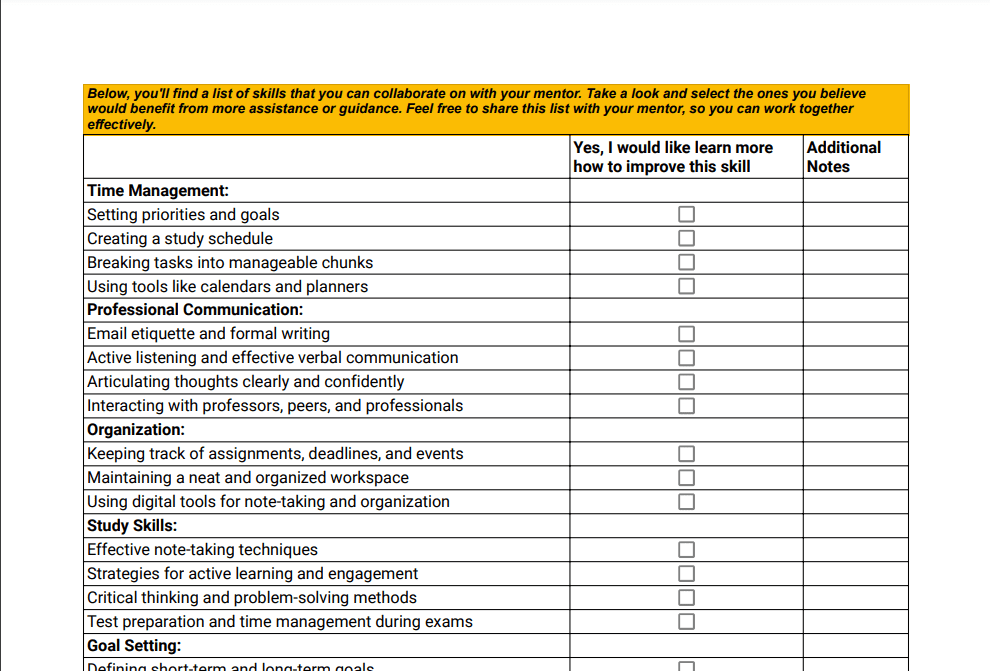Shaping success stories and futures together
Step 1: Understand the Role of a Mentor
Step 2: Build
Trust and Rapport
Step 3: Set Clear Expectations and Goals
Example Questions
Step 4: Actively Listen and Ask Open-ended Questions
Example Questions

Step 5: Identify Strengths and Areas for Growth
Example Questions
Step 6: Share Personal Experiences
Share relevant experiences from your own career journey. Stories can be powerful tools for conveying lessons and inspiring mentees to overcome challenges.
Resource: Book - "Mentoring Matters: A Practical Guide to Learning-Focused Relationships"
Example Questions


Step 7: Support Skill Development
Example Questions
Step 8: Encourage Networking and Professional Connections
- Resource: Article - "The Importance of Networking in College — Plus 7 Tips for Success"

Step 9: Foster Independence and Empowerment
- Resource: Article - "7 Ways to Foster Self-Esteem and Resilience in All Learners"
Example Questions
Step 10: Emphasize Resilience and Overcoming Challenges
Acknowledge that setbacks are a natural part of any journey. Help your mentee develop resilience and coping strategies to overcome obstacles.
Example Questions

Step 11: Celebrate Achievements
Example Questions
Step 12: Continuously Learn and Improve
Example Questions
Step 13: Maintain Confidentiality
Example Questions
Step 14: Know When to Seek Help
Example Questions

Guide through the registration process on the Chronus platform.
Once you have completed your registration and have been matched with a mentee, we encourage you to watch these instructional videos to become familiar with the platform:
1. Mentoring Connection Overview
2. Checking Your Mentee Profile
3. Scheduling or Logging into a Meeting
4. Using SurveysSuccess Story
List of skills
- Setting priorities and goals
- Creating a study schedule
- Breaking tasks into manageable chunks
- Using tools like calendars and planners
- Email etiquette and formal writing
- Active listening and effective verbal communication
- Articulating thoughts clearly and confidently
- Interacting with professors, peers, and professionals
Organization:
Keeping track of assignments, deadlines, and events
Maintaining a neat and organized workspace
Using digital tools for note-taking and organization
Study Skills:
Effective note-taking techniques
Strategies for active learning and engagement
Critical thinking and problem-solving methods
Test preparation and time management during exams
Goal Setting:
Defining short-term and long-term goals
Developing a plan to achieve those goals
Regularly reviewing and adjusting goals as needed
Networking:
Building relationships with professors and peers
Exploring student clubs, workshops, and events
Leveraging online platforms for networking
Problem-Solving:
Analyzing challenges and finding solutions
Developing critical thinking and creative problem-solving skills
Self-Advocacy:
Asking questions and seeking help when needed
Advocating for accommodations, if applicable
Expressing needs and concerns to professors and advisors
Professional Etiquette:
Dressing appropriately for different settings
Engaging in respectful and professional behavior
Understanding workplace norms and expectations
Problem-Solving:
Analyzing challenges and finding solutions
Developing critical thinking and creative problem-solving skills
Emotional Intelligence:
Managing stress and dealing with setbacks
Building resilience and coping strategies
Developing self-awareness and empathy
Digital Literacy:
Proficiency in using online learning platforms
Navigating online resources and research databases
Ensuring responsible and safe internet use
Career Exploration:
Identifying interests, strengths, and skills
Exploring potential career paths and industries
Seeking internships, job shadowing, and informational interviews
Cultural Competence:
Understanding diverse perspectives and backgrounds
Respecting cultural differences in communication and behavior
Building inclusive and diverse networks
Health and Well-being:
Prioritizing physical and mental health
Seeking resources for counseling and support services
Balancing academic and personal life


